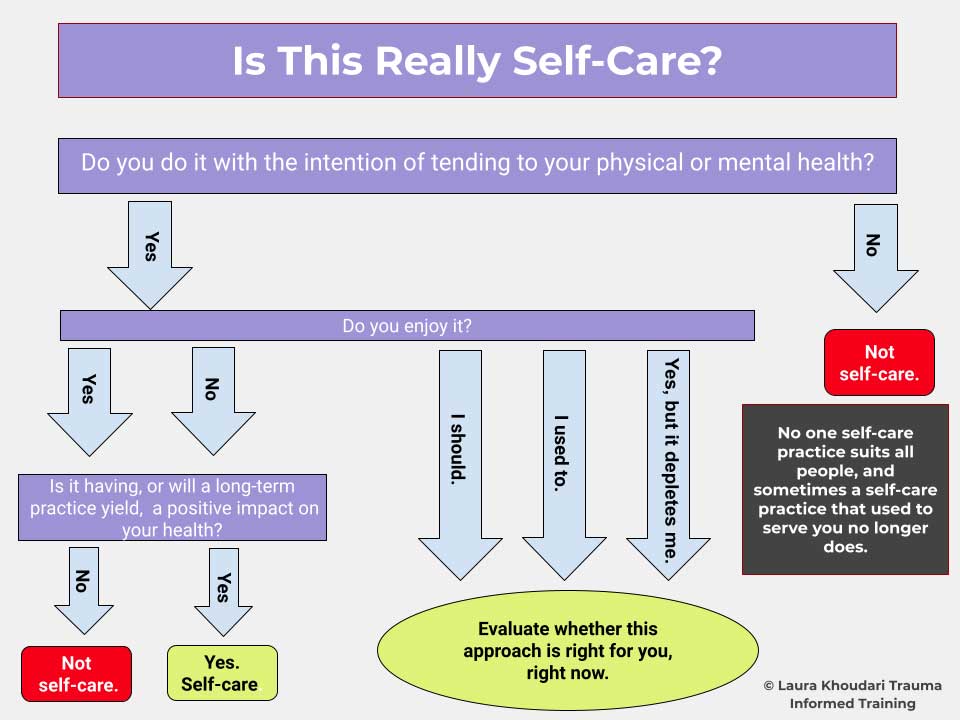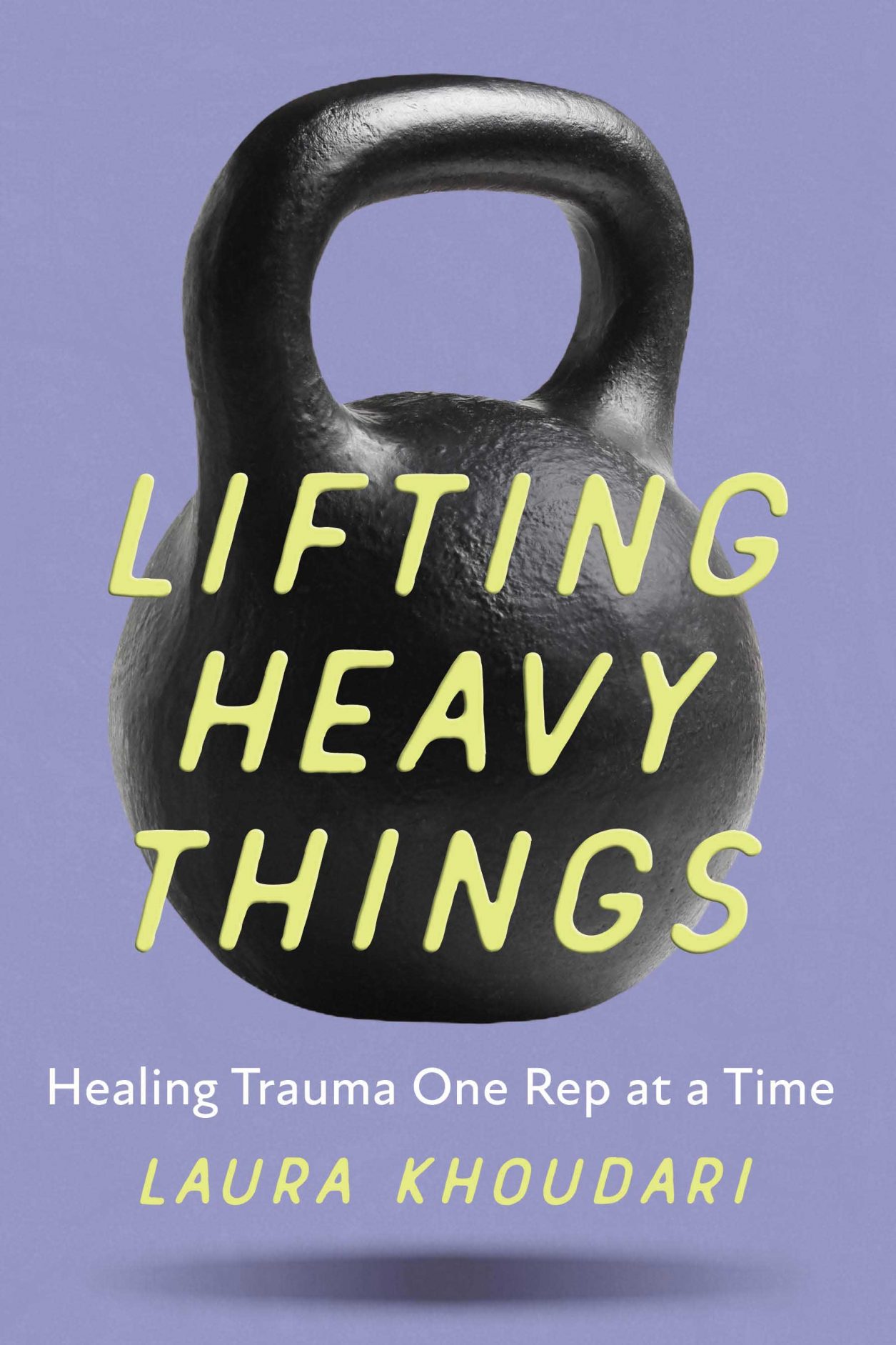Self-care means different things to different people. It also means different things at different times to each person.
Right now, self-care could mean treating yourself to a massage or doing Pilates three times a week on top of engaging in other healthy habits regularly. At other times, it could simply mean drinking enough water, bathing regularly, and showing up for therapy, doctor’s appointments, or life in general.
Self-care plans vary for my clients and me, but they all share the same intention: showing up for your own health and wellness. Yet, as the term “self-care” has become part of our everyday language, its meaning has actually become less clear. This lack of clarity can lead to confusion. People start to worry that they ought to be doing more self-care, ultimately creating distress, which ironically is antithetical to self-care itself.
Let’s look at what self-care is and its role in our overall health and wellness.
The history of self-care
The definition of self-care has changed dramatically over the course of the last 60 years. As Aisha Harris writes in “A History of Self-Care,” the term has its origins in medicine. In the late 1960s and early 1970s, self-care referred to ways patients with diminished autonomy, oftentimes the elderly or those living with mental illness, could engage in healthy habits and manage their own care.
As a concept, self-care took its modern shape as part of the civil rights and women’s rights movements. Activists recognized that the less privilege you have, the less access you have to healthcare. And yet, the less privilege you have, the more likely you are to want to fight to change the status quo. In order to stay healthy enough to survive, activists recognized the need for self-care. Self-care became the intentional and radical act of self-preservation.
Today, when most health and wellness practitioners talk about self-care, they’re speaking about the act of intentionally tending to one’s emotional, physical, and mental health. In my work as a trauma practitioner and certified personal trainer, I help clients identify self-care using this flow chart:

Managing any part of your wellness is self-care
Just because the way we use the term has changed, it doesn’t mean that engaging in healthy habits and managing your wellness are no longer valid forms of self-care. The truth is, self-care can often look and feel quite boring and be hard to do, contrary to the #selfcare hashtags we see on social media. Despite influencers and social media marketers trying to commodify self-care, self-care simply means showing up for your own health.
Self-care for many is about surviving: taking medication as prescribed, making and showing up for medical appointments, drinking water, and eating food. Self-care is often tedious and not very Instagrammable.
My own self-care plan, including all of its unexciting and uncomfortable moments, helped me slowly move from surviving to thriving. Today, my self-care routine involves plenty of dull moments: attending therapy, maintaining my back health through boring-yet-difficult core exercises, and tracking my water consumption. But it looks more glamorous because it fuels my capacity to work and allows me to take great pleasure in my family, body, and life.
Health, wellness, and healing take a village
This also raises another important point: health, wellness, and healing take a village. They cannot be solely individualistic acts. Therapists, family, and friends all played a role in my healing. Self-care allowed me to join with them.
Trauma, in any form, isolates us. As part of our healing, we must find ways back to connection. And while it’s important to feel a sense of agency—to master your health and wellness yourself—it’s also critical that you, as a social being, feel cared for by at least one other person. Being met with kindness and support is essential to healing. Self-care helps, but healing takes place in connection with others.
Giving yourself credit is an essential step
If your current self-care plan involves meeting your basic physical needs, that’s awesome! You are tending to your overall health in an autonomous way, and that’s empowering. I know I need to be reminded of this at times, and maybe you do, too.
When I was first in treatment for PTSD, I would cry in therapy because it felt like all I could do was show up for myself and my family. My therapist kindly, and repeatedly, reminded me that “just showing up” was plenty. I was taking care of myself, and I was taking care of my PTSD. Having her validate that what I was doing was enough helped me keep going, and over time, I realized I was capable of more than I initially thought. I was engaging in self-care and receiving her care as well.
With time and space, I was also able to see that what I had been doing was pretty phenomenal, even if it didn’t look like it to others. I slowly got better. I recovered enough to put barbell training, something I love, back into my life. I was able to actively take care of my family again. And I even began to be open to the possibility that I could increasingly do more with my life.
Training, drinking water, going to the doctor, getting massages, gardening, going for walks in the park, dressing up, dressing down, taking naps, shopping, traveling, introverting, extraverting, meditating, doing yoga—whatever you choose to do—can be a self-care practice if you’re doing it with the intention of tending to your physical, emotional, or mental health and wellness. If you’re showing up for yourself in the most basic of ways, know that I see you and applaud you. You are engaging in self-care!
 Laura Khoudari is a trauma practitioner, certified personal trainer, and corrective exercise specialist. Widely recognized within the trauma and fitness communities, she is passionate about giving people the tools they need to heal from trauma and cultivate wellness. She is the author of Lifting Heavy Things: Healing Trauma One Rep at a Time. Learn more at laurakhoudari.com.
Laura Khoudari is a trauma practitioner, certified personal trainer, and corrective exercise specialist. Widely recognized within the trauma and fitness communities, she is passionate about giving people the tools they need to heal from trauma and cultivate wellness. She is the author of Lifting Heavy Things: Healing Trauma One Rep at a Time. Learn more at laurakhoudari.com.




















